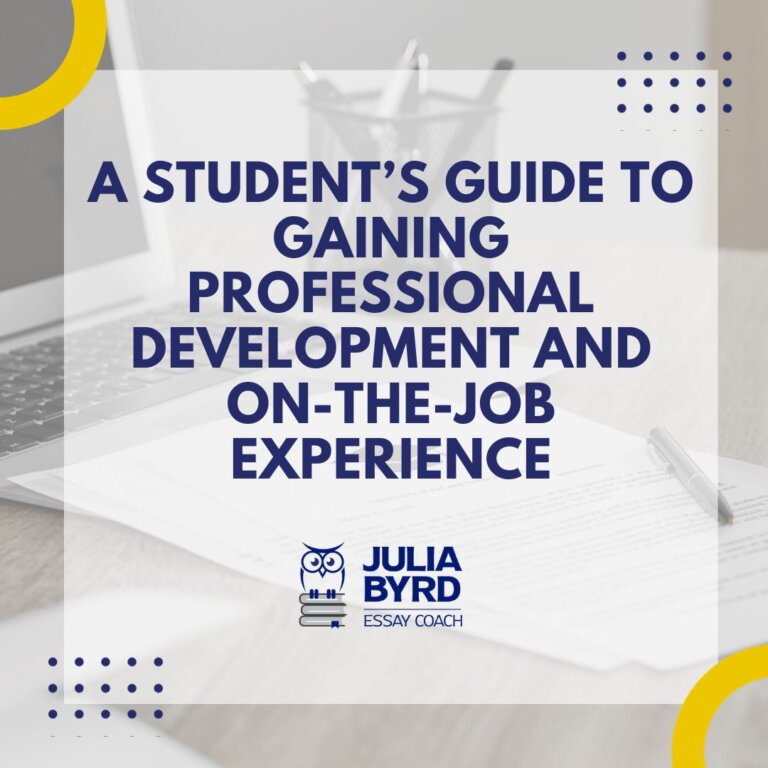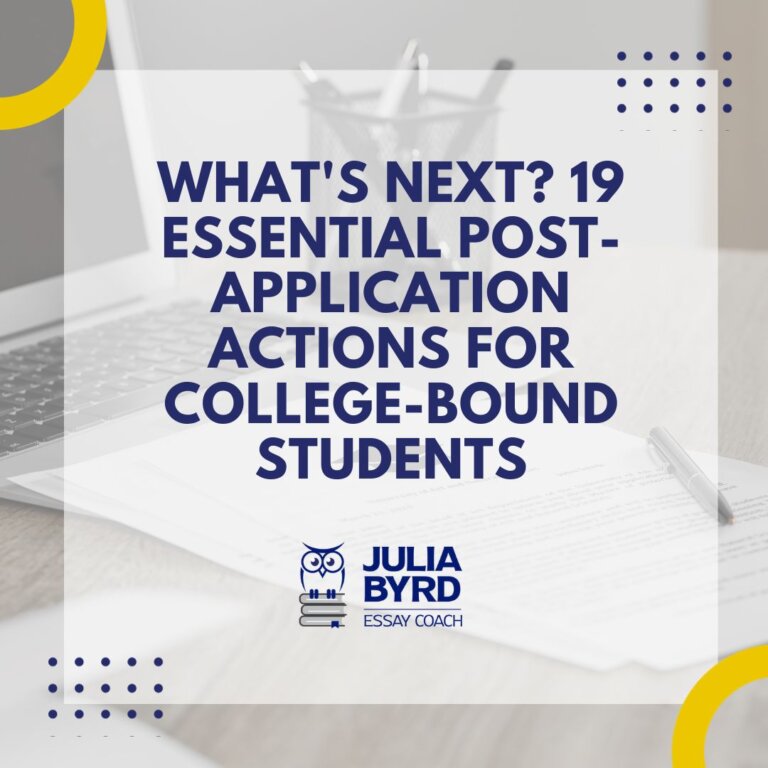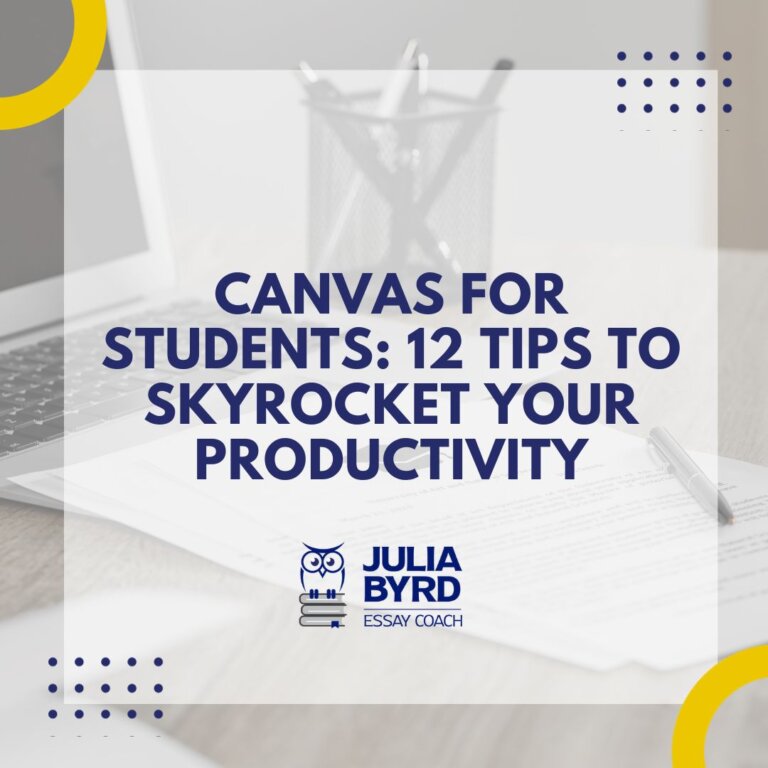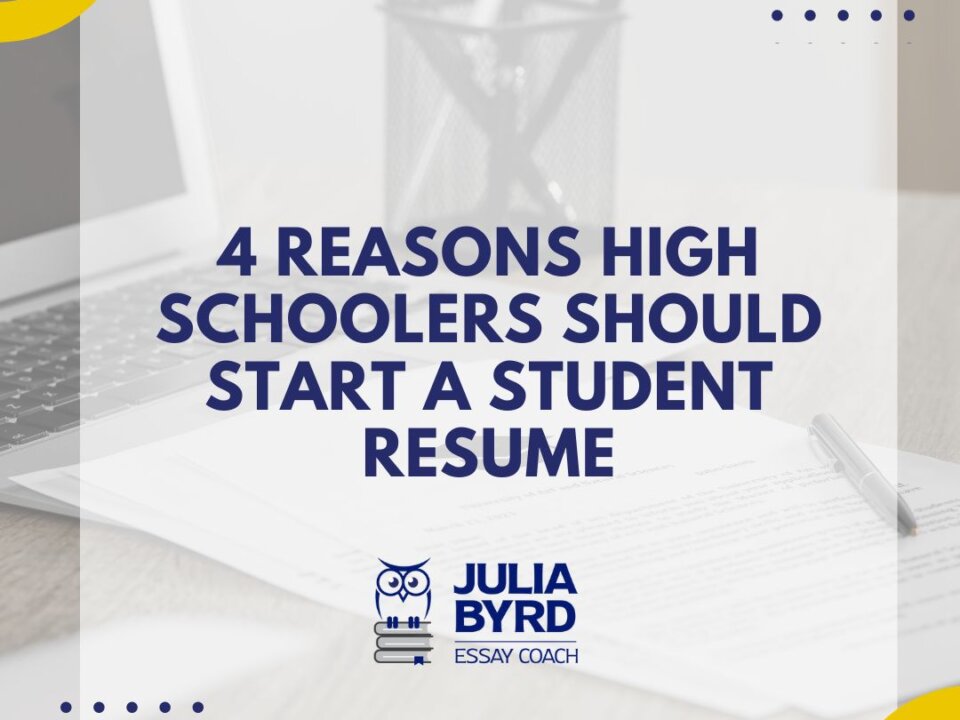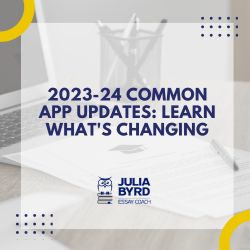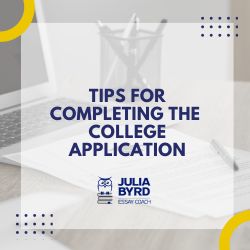How to Get Awesome Letters of Recommendation for College

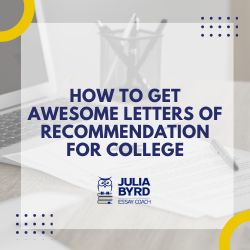
Letters of recommendation for college are important — and maybe more important than you thought. According to a National Association for College Admission Counseling (NACAC) survey, these letters can be more important than class rank or even extracurricular activities. Some schools, according to the survey, even rank it above the admissions essay in terms of importance.
So it’s important that students make sure these letters of recommendation get done by the right people, at the right time, and with the right information.
Here are my top tips to keep in mind for making sure you get a great letter of recommendation for college and scholarships with the least amount of stress!
1. Pick the Right People
Give some thought as to which teachers would be the best recommenders for you. Ideally, you want recommendations from two teachers who:
- Have taught you in a core class (math, English, social studies, science)
- Have taught you recently (e.g., junior year)
- Really know and like you
Can’t find someone who matches all three? (I know it might be difficult due to remote learning.) Pick a teacher who really knows and likes you (and who has taught you in high school).
While you can ask your yearbook advisor or band instructor or football coach for a letter of recommendation, try not to use these as your main letters. Colleges are interested in how you’ll do academically, and letters from core teachers will offer the best insight.
Some colleges and universities, however, also allow recommendations from “other” recommenders. This is a great place to put in your art teacher’s recommendation (after you’ve added your recommendations from core class instructors, of course).
Note: Some schools/majors require recommendations from teachers in specific areas, so make sure you’re aware of any restrictions before picking your recommenders.
2. Ask Early (and in Person)
So how early is “early”? Ideally, ask toward the end of junior year if these individuals are willing to write letters for you the summer before senior year. (At a minimum, make sure you give them four weeks’ notice.)
While application portals won’t be open until later in the summer, you want to make sure your recommenders are ready when the portals go live. Some teachers write only a limited number of recommendations each year; some have busy summers and don't want to spend it all writing letters. And for whatever reason, some teachers may simply not be comfortable writing a letter for your student.
That's why you can't assume your favorite math teacher will be willing and able to write your letter. Asking early will make sure you’ve got your recommenders covered and that your letter is on your teacher’s radar.
Of course, it's best to ask a potential recommender in person, but COVID may not make that possible for everyone. So if you need to email your request, make sure to do it in a polite, professional manner.
3. Provide Information
Most teachers are familiar with the format and content needed for these letters of recommendation for college and scholarships, but they will need a little information from you to get started. When you talk with your teachers to have them get started on their letters for you, don’t forget to:
- Thank them in advance for taking the time out of their schedules to write your letter.
- Give them a list of schools you’re applying to and their deadlines. You may not know this, and that's OK.
- Request a reasonable date for completing the letters of recommendation. (Having them done by the time your application portals open — around Aug. 1 — is great, unless you need them earlier for scholarships.
- Provide a copy of your resume detailing all your academic achievements, awards and recognition, and extracurricular activities. The resume helps the teacher personalize the recommendation even further and include important accomplishments. (BONUS: This completed resume will help you a LOT when it comes time to fill out applications!)
- Share what you’re intending to study and why. What characteristics do you have that are going to make you great in that field of study?
- Share what you hope to do/be in the future. What will make you successful in that career?
- Add some personal details. Share a few things that make you who you are outside of school. What hobbies are you into? How do you spend your free time? What five adjectives describe you?
- Follow up with each teacher by email, including all these details so they're easily accessible by the teacher if needed.
Note: For many college applications, the teachers will upload the recommendations directly into your portal after you name that teacher as a recommender. But if you do need to physically mail them, please provide your recommender with a stamped, addressed envelope. Also note that recommenders don’t generally customize their letter to each school; instead, they write and upload one letter that’s disseminated to all schools to which you’ve assigned the recommender.
4. Confirm Your Deadlines
Once you've got everything ready to go, make sure you know (and have confirmed) your deadlines, you convey those deadlines to your recommenders, and you give them plenty of time to complete their letters. Giving teachers plenty of time is especially important if you’re requesting a letter from a teacher who’s known to be forgetful or a procrastinator. (Hey, it happens to the best of us!) You should be able to see in your admissions portal when the teacher has submitted their letter, so feel free to send gentle reminders about deadlines if you don’t see it submitted by the agreed-upon date.
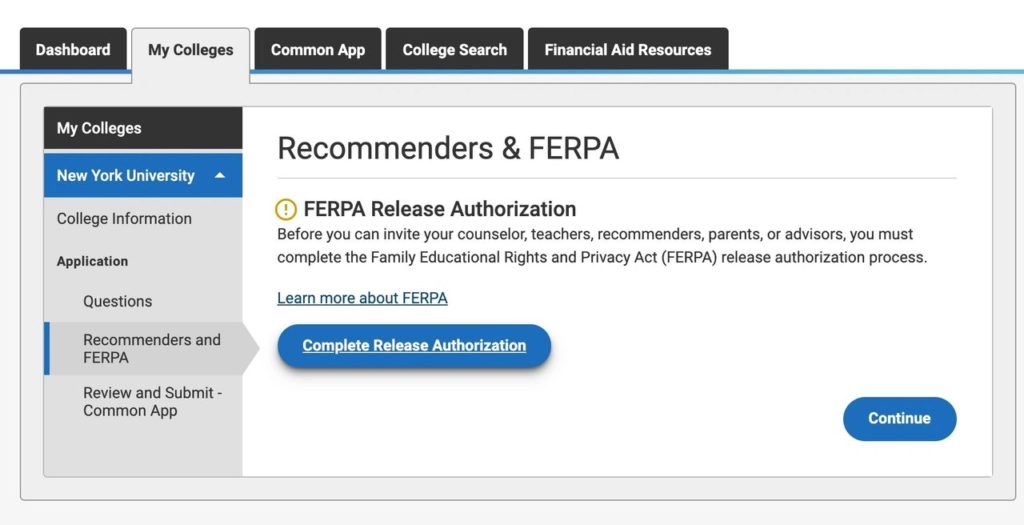
5. Waive Your Right to See the Letters
If your recommender is writing a letter they’ll upload to the Common App, for example, make sure you waive that right (known as “FERPA”) to read the letter. That’s right — you don't want to read the letter. You want your recommender to feel they can be totally honest in their letters (another good reason to make sure you’re only requesting them from teachers who have lots of great things to say about you). Waiving your right to read those letters of recommendation for your college application will let your recommenders do just that. Plus, if you don’t waive your FERPA rights, colleges might assume you’ve read the letters and may not believe they’re objective — and that could be a detriment to your application.
6. Think About Scholarships
If you anticipate needing letters of recommendation for scholarships, have the writers create one letter for admissions recommendations and another they can share with you in PDF form to submit for scholarships.
Note: With many scholarships, it's requested to have at least one academic recommendation and one nonacademic recommendation (e.g., from a boss, a church leader, a volunteer coordinator, a non-school coach).
Check out my list of scholarship resources — applying for them is easier once you have a resume and letters of recommendation!
7. Give Your Thanks
Remember, these teachers didn’t have to write those letters for you. So the least you can do is a handwritten note of thanks to the teachers for taking the time to write your letter. If you'd like, you may also include a small gift or gift card.
Time to Start Asking for Your Letters of Recommendation for College!
Recommendation letters are an important part of the application process, and with the right prep work, you can make sure your letters help you stand out from the crowd of applicants.
Need some help getting started with a resume? Access my free template in Google Docs.

